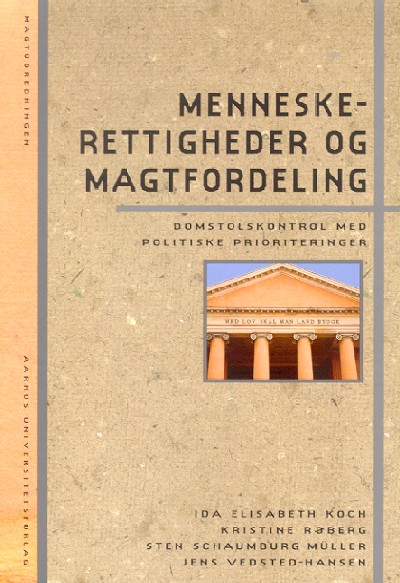The Danish human rights debate focuses more and more on question of power: Who should define the contents and weight of human rights in relation to other interests? Do the courts have too much influence on the state of the law when human rights are enforced? Do these rights undermine the power of the government and of the parliament and thus democracy?
The question of power in relation to human rights is nothing new. When the European Convention on Human Rights was incorporated in 1992, the central issue in the debate was whether this step would affect the balance of power between the legislature and the judiciary. The question has resurfaced in recent years debates about incorporating certain UN conventions on human rights.
The Danish Democracy and Power Study has analyzed how international human rights affect the relationship between the legislative and the judiciary branches in Denmark. The book focuses in particular on the impact of the European Convention of Human Rights on the distribution of power. The preconditions for incorporating the convention are subjected to a critical review in order to assess whether they have held up. The analysis focuses on specific legal areas that have proven important in human rights discussions: freedom of organization and right to negotiate on the labor market, protection against discrimination, freedom of speech and expulsion of foreigners.
The book does not offer a simple answer to the question of power. However, the is nothing to indicate that democracy and human rights are opposing values.
